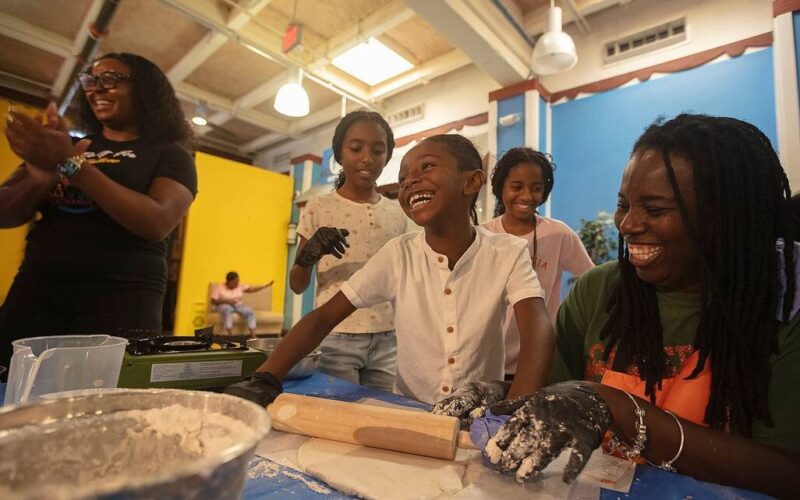MIAMI — Ashley Carter was born and raised in Miami’s Liberty City. Growing up, both of her parents had health issues, and unfortunately, due to health complications, her mother passed away when Carter was 14.
“I didn’t really make the connection to the environment that we lived in, as far as not having grocery stores nearby and healthier options, just lots of fast food and corner stores. But after I went off to Florida State, I saw a different environment, so that inspired me to come back home and create those changes that we needed in our community,” says Carter.
Carter, a registered dietitian, founded EatWell Exchange in 2017 as a nonprofit on a mission to educate communities on eating healthy with foods from their culture. Healthy eating habits can be passed on from generation to generation, which will help prevent disease. “My focus is generational health so that we can all be healthier, and also increasing access to healthy foods,” Carter says.
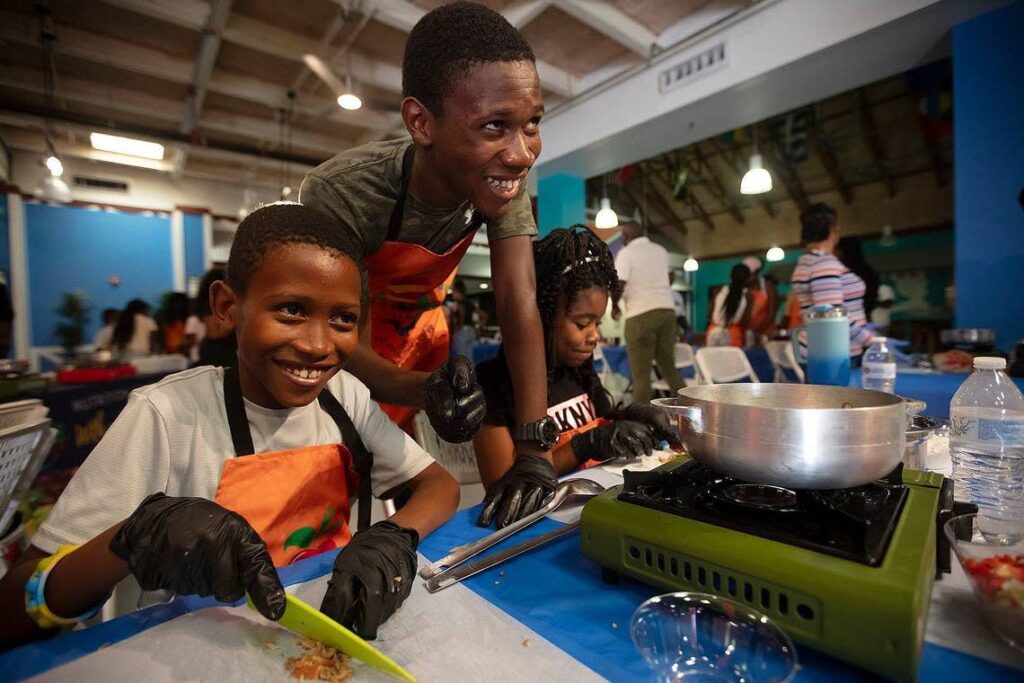
Renaldine Verdieu, 11, Timothy Louis, 15, and Giana Luigi Louis, 10, do prep work during the cooking class by Eatwell Exchange, the Miami nonprofit that teaches families how to prepare healthy meals from their homeland. They are at a class at the Little Haiti Cultural Complex.
To increase access to fresh produce, EatWell Exchange offers gardening programs, including classes on growing your own foods. EatWell often partners with local or national Black-owned farms. The core of EatWell’s programming is its free farmers market for its constituents. “Along with that, we give nutrition education and recipes to help people use the foods that they’re getting in a healthier way,” Carter says.
Other programs are focused on nutrition education. EatWell’s nutrition program includes cooking demos at community events and festivals and multi-generational hands-on cooking classes, such as the ones held on Saturdays at the Little Haiti Cultural Complex.
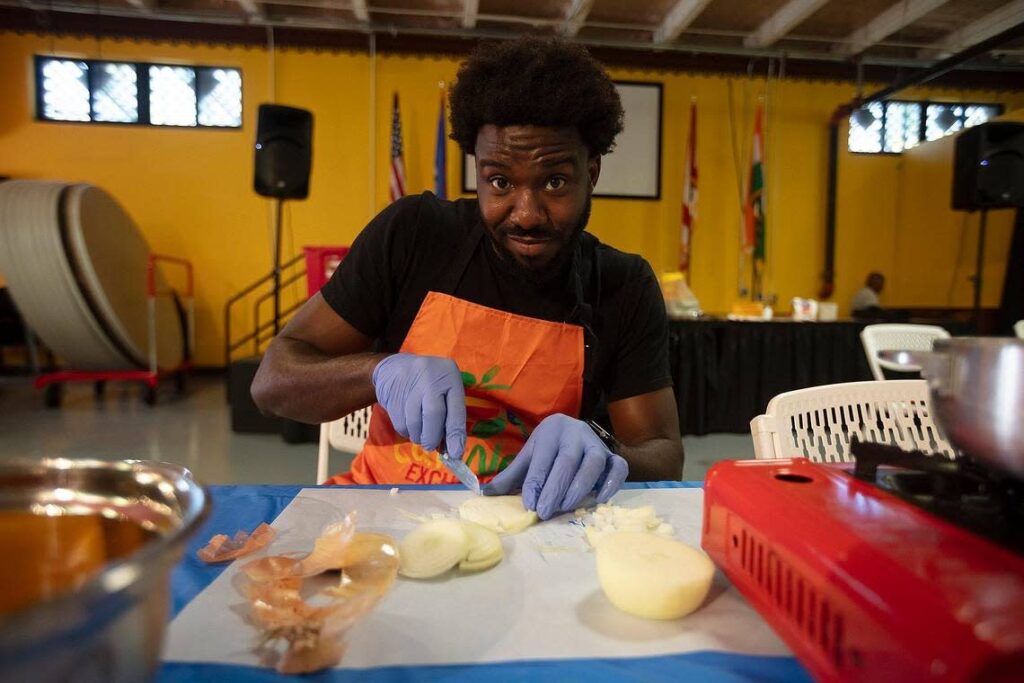
Jevanni Milien cuts onions during a cooking class by Eatwell Exchange, a Miami nonprofit that teaches kids and families how to prepare healthy meals from their homeland, Little Haiti Cultural Complex, Sept. 7, 2024.
In the classes, which are in partnership with schools, youth centers or community centers, kids learn how to cook full meals with the foods of their culture, often with family members. EatWell recently started programs in Spanish and Creole.
“We have an elder from the community who helps us lead those classes to show that the dishes we’re cooking are not just good for us as millennials, but they’re also good for your parents, and then kids come to that class as well. We encourage people to come to every session because the skills build off each other,” says Carter. “We have a nice age range, and it’s so much fun.”
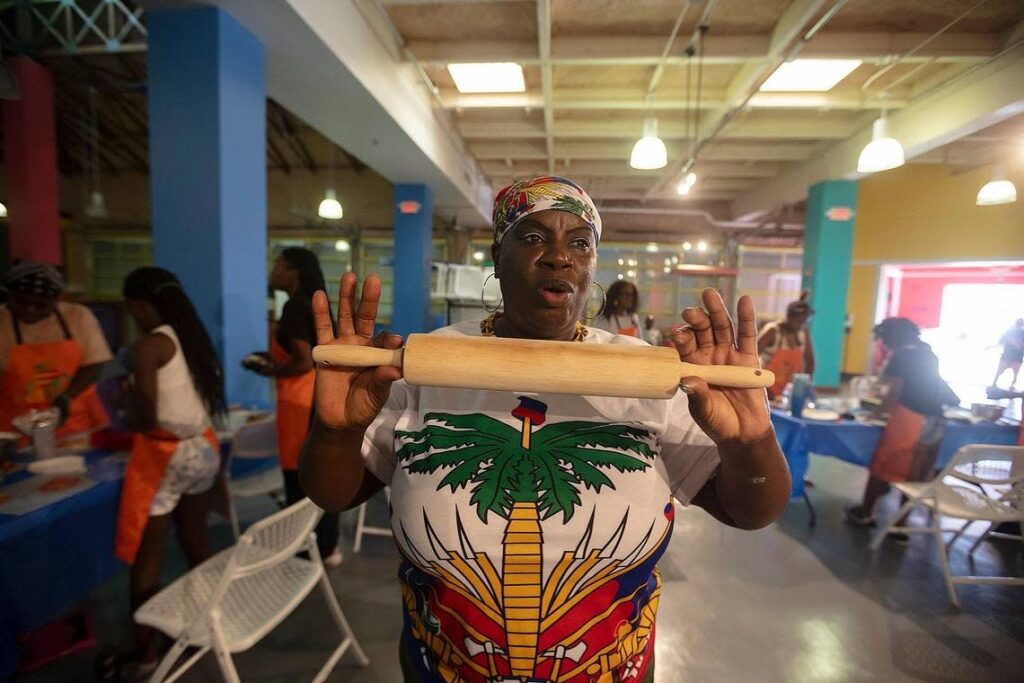
Chef Angie Thomas teaches a cooking class hosted by Eatwell Exchange, a Miami nonprofit that teaches family how to prepare healthy meals from their homeland, at the Little Haiti Cultural Complex.
Carter has partnered with Ruban Roberts, who runs Teen Talk Dialogue Sessions, to improve mental health outcomes for youth in marginalized communities. Carter is Teen Talks’ nutrition facilitator.
“Unfortunately, many of the youth in our programs experience some level of food insecurity, which we know has a profound effect on their physical and mental health,” Roberts says. “Our partnership with Ms. Carter helps us provide participants with simple, accessible nutritional options that also increase their confidence in the kitchen and gives them tools to thrive.”
EatWell Exchange also works with Amigos For Kids, a nonprofit organization dedicated to the prevention of child abuse and neglect. With EatWell, Amigos for Kids launched a nutrition education program for Hispanic families in Miami-Dade County, says Susana Vela, Amigos for Kids’ senior director of programs and strategic partnerships.
“Together, the organizations provide essential nutrition education and access to healthier food options, as a family, which strengthens the health of underserved Hispanic communities. This comprehensive approach enriches both missions by promoting physical health and family stability in a culturally sensitive manner,” says Vela.
So far, EatWell has helped over 41,000 people, says Carter, who started Eatwell in 2017 but has only been running the nonprofit full-time for the past two years. “Typically, after doing a culinary class, 75% of the students say they’re more willing to eat fruits and vegetables at home. When we do our free farmers market, most people report that they would eat more fruits and vegetables if it was more accessible to them,” Carter says.
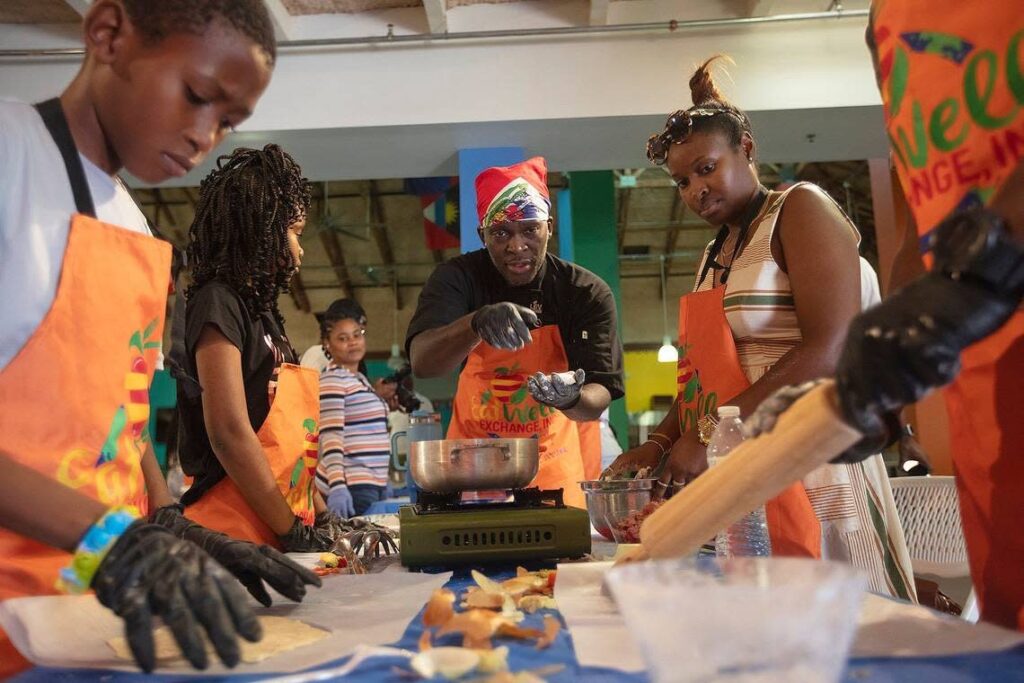
From left, counter-clockwise: Renaldine Verdieu 11; Giana Luigi Louis 10; Chef Robinson Joseph in center; Claudia Norvilus; and Timothy Louis, 15, cook during the healthy foods cooking class by Eatwell Exchange, at the Little Haiti Cultural Complex in Miami.
Carter’s organization offers programs nationally too. Her co-founder, Jasmine Westbrook, lives in Raleigh, North Carolina, and they often travel to conferences to speak around the country and typically do an event while in a city.
“People will say, ‘This is my first time ever seeing my cultural foods regarded as healthy.’ It’s moments like this that show us that we’re able to make the impact we want, which is decreasing negative health outcomes, while still allowing people to continue their cultural norms and traditions,” says Carter.
Needs a teaching kitchen
Carter would like to have a teaching kitchen as part of “a healthy hub” in Miami for EatWell Exchange’s classes, farmers markets and other initiatives. That is a big goal for the next year. The organization is also continuing to work with community organizations, city officials, schools and churches to expand its programming.
How can people help? Says Carter: “The number one thing is to share our mission, to tell people what we’re doing. Outside of that, of course, funding is always needed for our programs to run, and we welcome volunteers. This year. We’ve had over 200 events, virtually and in person, so we always need help with staffing our events.”
Grants and donations support EatWell’s work. Recent funders have included The Children’s Trust, NBC6 and The Miami Foundation, among others.
“We are so proud of the work that EatWell Exchange is doing in Miami. Their ability to empower local communities in the preparation of traditional foods enshrines history and culture in nutrition. They are amplifying the importance of legacy while educating entire generations – it is transformational,” said Vicky Checo, director of community investments at The Miami Foundation.
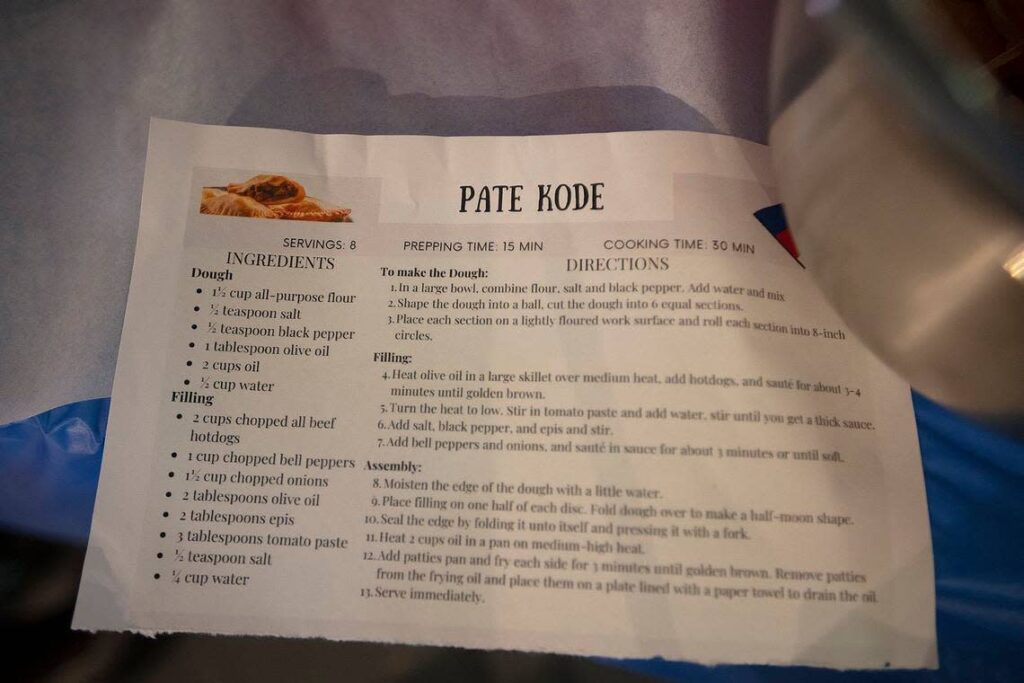
The recipe for Pate Kode, a Haitian savory pastry, is shared during the cooking class by Eatwell Exchange, a Miami nonprofit that teaches families how to prepare healthy meals from foods of their homeland. The class was at the Little Haiti Cultural Complex, Saturday, September 7, 2024.
How to help
To donate to EatWell Exchange, head to https://www.eatwellexchange.org
By NANCY DAHLBERG/Miami Herald

